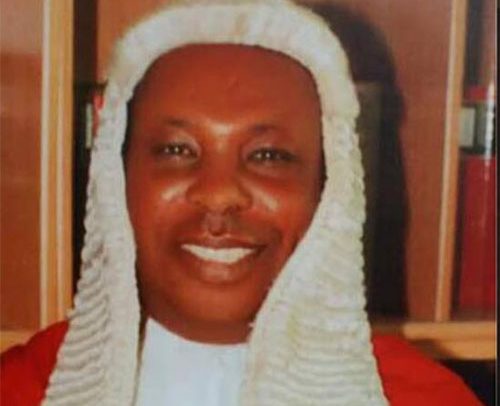Justice Issifu Omoro Tanko Amadu
A nominee to the Supreme Court, Justice Issifu Omoro Tanko Amadu, has backed government measures to contain the spread of the coronavirus disease, saying it’s “reasonably necessary” to deal with, and therefore, such measures do not infringe human rights.
The judge said the government has a responsibility to make sure that Ghanaians are not totally “annihilated” by the COVID-19, indicating that a person needs to be alive to enjoy rights and privileges.
Members of the opposition National Democratic Congress (NDC) have impugned that the government’s response to the unprecedented global health challenge has not fully respected the rights and dignity of the citizenry, with some describing the border closure and non-evacuation of Ghanaian students in China as inhumane.
This was after the NDC had openly opposed the Imposition of Restrictions Act 2020 that provides the President a legislative framework, in consonance with the Constitution, to impose restrictions as a quick and effective means of intervention to addressing the COVID-19.
However, answering a broad range of questions on his nomination to the Supreme Court at the public vetting by Parliament’s Appointments Committee on Monday, Justice Tanko Amadu said he believes every reasonable measure to deal with COVID-19 will not be a human right abuse, adding that “we must live before we enjoy rights.”
“If we don’t live, remember a dead man has no rights, and therefore, every measure which is reasonably necessary by any government to make sure that we are not totally annihilated by this disease which defines it definition ought to be taken,” he stressed.
Justice Tanko Amadu, currently with the Court of Appeal, said the COVID-19 situation is an extraordinary situation which has taken countries in the world and their leaders by surprise.
He, however, indicated that it is incumbent on judges to be vigilant and to live up to the oath sworn and calling to do justice to all manner people when a person or group of individuals come to court with a complaint that their rights have either been taken away or trampled upon by any other person or authority.
Judicial Temperament
On his temperament, the nominee stated that he has never lost his temper or thrown a docket at any party or lawyer for anyone to suggest that he is a hot-tempered judge and assured the committee that he is assertive and a disciplined when it comes to time-keeping.
“As for temperament, I don’t know what they mean because there is a distinction between courtroom discipline and the temperaments of a judge.”
Justice Tanko Amadu indicated that even though he had changed personal drivers before, that did not qualify him to be described as hot-tempered judge.
“It is true that I have changed drivers, but nobody will keep a driver who records a conversation. And no one will keep a driver who steals. That is one, and I can only recall two situations. The drivers left by themselves,” he explained to a question about his temperament asked by the North Tongu MP, Samuel Okudzeto Ablakwa.
“Your respondents didn’t tell you I am one judge who reports at the court premises as early as 6:00 am every day; even though I live nearly 40 kilometres away from the city centre?” he asked rhetorically.
He continued that he is a disciplinarian when it comes to time and would not tolerate excuses by counsels for being late in court, and urged his accusers to distinguish between strict adherence to what the work requires and unnecessary temperament.
“I am now workload judge and I want to keep to the time table of my litigation,” he concluded.
By Ernest Kofi Adu


